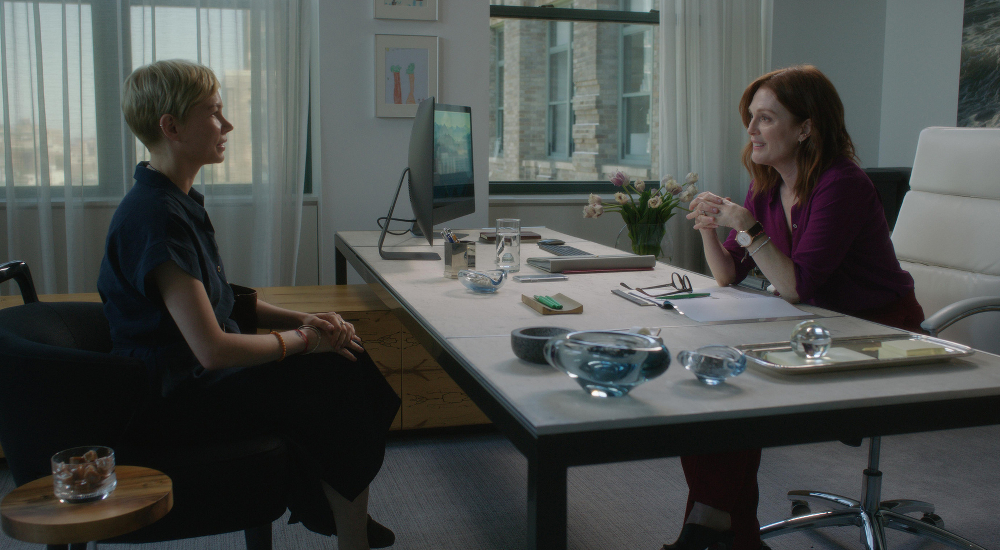“Why are you doing this?”
Beginning and ending at the Home of Loving Care in the heart of India, Bart Freundlich’s After the Wedding tells the intricate story of two women, each powerful in their chosen path, who share a peculiar link.
Michelle Williams stars as Isabel, a young woman who has dedicated her life to helping those in need. But the orphanage she works at is struggling financially, finding it difficult to provide for the thousands of children who suffer daily.
On the other side of the world, nestled in her large corner office in New York City, Theresa (played brilliantly by Julianne Moore), is preparing to sell her baby, Horizon Media. After the sale, she is looking to give a portion of the money to a good cause. A face-to-face meeting is necessary for such a substantial monetary commitment, though it should be noted that the introductionis anything but chance.
Though simple in nature and somewhat sluggish in parts, After the Wedding is a film that excels thanks to the workings of its two prominent leads. Williams and Moore share a unique bond, crafting their characters with authentic complexity as they allow their emotions to help determine their actions, ultimately paving the way for a genuine and credible interaction that feels real. From Isabel’s constant removal of her shoes to Theresa’s stern, business-like approach to every situation, the women couldn’t be more different. However, as the film progresses and you get to know them both, you can’t help but acknowledge just how alike they are.
Holding a massive secret with a serious impact on both of their lives, neither woman realizes the influence their information can have on the both of them. When the two meet, they bear unique personality traits, each of which foreshadows to what they are hoping to accomplish with the meeting: Isabel needs money, Theresa longs for a connection. Neither will achieve their goals exclusively, opening the door to a partnership of sorts. It is this collaboration that helps give After the Wedding its soul.
Freundlich works to intertwine the women’s lives while giving viewers a realistic look at how people can work together to reach a common goal. Though similar in several ways, it is ultimately the women’s differences that help to shape the tone and direction of the story. While several obstacles are quickly resolved, often times without much conflict - you begin to realize that the film is a strong representation of how adult issues are handled when something bigger is at stake. The approach is a breath of fresh air given our current societal climate and helps us to understand better the sacrifices both women have made to reach this point in their lives.
The story does become a bit cliché as Freundlich struggles to get through the sorrow without dragging his feet for the sake of our tear ducts; however, After the Wedding recovers nicely during its final five minutes to give us all the conclusion that we deserve. Though any art which imitates life doesn’t guarantee a happy ending, unlike many indie dramas before it, this film offers us an authentic look at real life, however proverbial it may be.

